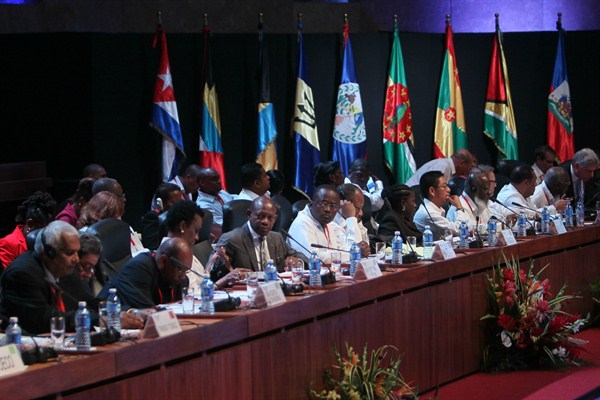Just when the United States seems to be retreating from competition in global markets, and possibly even NAFTA, socialist Cuba is moving in the opposite direction. With the signing late last month of a new trade agreement with the 15 countries of the Caribbean Community, or CARICOM, Cuba is looking to capitalize on trade and economic links with its neighbors.
The feeling is mutual. The Caribbean countries have begun to see Cuba in a different light following the start of the normalization of relations between Havana and Washington and the prospect of the U.S. lifting, or at least relaxing, its Cuban embargo. Instead of their old view of Cuba as a threat, Caribbean countries are coming around to seeing the country as an economic opportunity.
Cuba’s changing relationship with two key countries—the U.S., its traditional nemesis, and Venezuela, its recent benefactor—are providing both the means and incentives for this turnaround in the Caribbean. For the first time since the revolution, Cuba has a chance to achieve its economic potential and become a significant force throughout the region. The absence of a major international patron is forcing the Cuban government to confront the country’s long-standing economic malaise with a market-oriented reform program. In turn, the relaxation of U.S. restrictions, Havana hopes, will allow Cuba to grow its economy by shifting resources toward its areas of comparative advantage, such as tourism.

